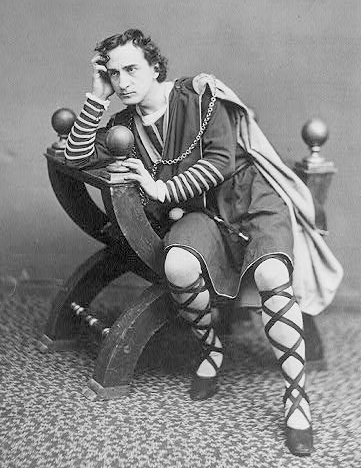HAMLET: What’s Going on with Him?
Hamlet. Sad boy. Mad boy. The original fuckboy.
I’ve watched four versions of Hamlet this past month, as part of the Bard binge that overtook my life since I drank in the splendor of Joel Coen’s impeccable The Tragedy of Macbeth and a sharp production of The Merchant of Venice at the Theatre for a New Audience.

Hamlet is such an off-kilter character. He vows to avenge his dad, then skips around the castle trolling his mom and Polonius and anyone else who dare try to decipher his cryptic wordplay. He professes his love to Ophelia, then spurns her in a paranoid, misogynistic rage. He hatches his master plan to “catch the conscience of the king,” then in the very next scene contemplates whether life is even worth living.
His behavior isn’t inconsistent, but it sure is worrying! I wouldn’t protest if we decided he was the first character in modern English literature to inspire the immortal question, “What’s going on with him?”
Working with Hamlet’s chaotic palette of personality traits, an actor can emphasize those of his choosing while muting others. In collaboration with the director, he can truly make the role “his own.”
In this 1948 adaptation, Sir Laurence Olivier (who also directed) portrays Hamlet with a sort of haughty prissiness. It’s a watchable performance because of its unsettling precision. Even in Hamlet’s uncertain moments, Olivier moves with poise and purpose. Not a breath or tic is wasted. It’s not so much that you feel for this Hamlet; it’s more like you want to keep an eye on him because you feel like he’ll cut you the second you turn away. He’s chilling, but with enticing notes of sadness.
He’s one of my favorite living actors, but David Tennant’s portrayal in the Royal Shakespeare Company’s adaptation is somewhat limited. He amplifies Hamlet’s madness and unbounded rage. By giving into the character’s more unhinged tendencies, he erects a barrier between Hamlet and the viewer. Made in 2009 at the tail-end of Tennant’s Doctor Who run, I could see him wanting to remind viewers that he’s more than just a lovable superhero, dammit! But funnily enough, he delivers a performance that feels distinctly like an evil Doctor (or The Master, for my fellow Whovians out there). It’s all kind of exhausting and opaque.
You gotta give it up for overachiever Kenneth Branagh, who headlined and directed this largely unabridged 4-hour adaptation from 1996. Similar to David Tennant, he takes the “mad loud prince” approach, but he adds some spritely charm. I think a key part of Hamlet is his fatalistic sense of humor: everything’s kind of a big cosmic joke to him. Branagh nails the tone not just with the character, but with the entire production’s dual approach to winking melodrama and bitter gallows humor.
Ethan Hawke shines in 2000’s maligned and forgotten adaptation. This precursor to the Shakespearean boardroom dramatics of Succession transposes the story to contemporary NYC. The Danish prince is now the would-be heir to a media corporation named Denmark. (Cute, right?) Hawke’s Hamlet goes small where others go big. He simmers where others burn. He seethes where others blow a gasket. In the ‘90s, Hawke made bank on his sensitive boy-about-town persona in slice-of-life dramedies like Reality Bites and Before Sunrise. Those “quietly suffering Gen X-er” vibes serve him well here. His lowkey haunted smarm unfurls in stark contrast to the epic chaos he leaves in his wake. It’s just too bad that this movie was written off as trying too hard to appeal to the MTV set. While director Michael Almereyda did his movie no favors by setting an iconic soliloquy in a freakin’ Blockbuster, I do think critics were unfair to an adaptation that took risks, got messy, and found the devious humor that’s vital to a successful Hamlet.
These four actors are but the tip of the iceberg, as illustrated by the above supercut. I’d also love to see more Hamlets embodied by women and nonbinary performers giving their own fresh take on this character. After all, this tale has endured for four centuries because Hamlet’s brand of uncontainable mess lurks - amusingly, disturbingly - within all of us.